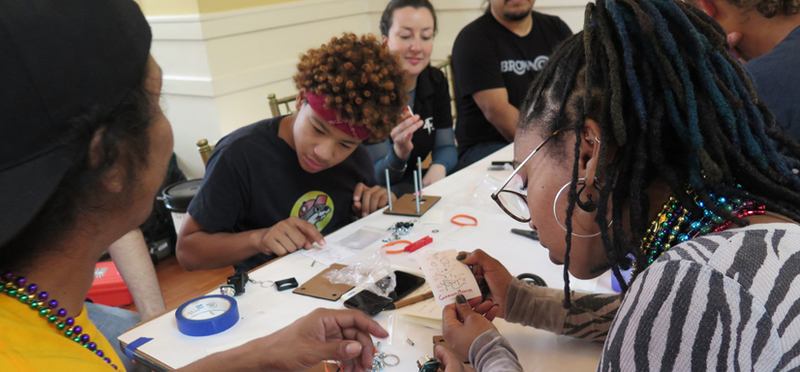
Welcome to Public Lab
Rationale
For people first encountering Public Lab, there are a lot of unknowns about how our community is organized, how we collaborate, our culture, and the personal relationships that fuel our work.
Welcome Committee
The Welcome committee was created to do just that -- welcome people first encountering Public Lab, and provide a personal connection for explaining our culture, ethics, our digital infrastructure, and organizational structure.
Common questions
Explain a bit about how the Public Lab community works both in person and online -- how to share your work, and what your rights and responsibilities are if you choose to participate. Here are some 1-page PDFs:
- A standard "Welcome to Public Lab": welcome-to-plots.pdf (PDF)
- A handout specifically for workshops ("by participating in this workshop..."): welcome-to-plots-for-workshops.pdf (PDF)
Edit these in Google Docs here:
https://docs.google.com/document/d/1gNthbscUD2BZJRCllDx169ZD4tqoKtC7wqs_BhD4vnc/edit
You may also want to hand out copies of the CERN Open Hardware License:
- cern-ohl-1.1-2pager.pdf (2 page PDF)
Read more about the CERN OHL here: http://publiclaboratory.org/wiki/open-hardware-licensing
Full text (edited for general and workshop versions):
Welcome to the Public Laboratory for Open Technology and Science!
Welcome to a collaborative research effort including activists, makers, scientists, technologists, curious people and assorted hybrids of all of the above.
Together, we develop open-source tools for environmental exploration and investigation, promoting inexpensive and accessible ?Do-It-Yourself? techniques to increase the ability of underserved communities to identify, redress, remediate, and create awareness and accountability around environmental concerns. But it only works if we all share our ideas and innovations! This means that you have some responsibilities:
- to share what you do with the rest of the research community (through our mailing list and website: http://publiclaboratory.org)
- to help others leverage your and Public Lab?s research and resources
- to cite our community (which you?re now part of) when presenting or publishing your work, if you based it on or drew ideas from the Public Lab research community.
But it also comes with benefits!
- a community of diverse and helpful fellow researchers to ask for support and advice -- by signing up on the website you may join several relevant mailing lists
- a growing body of open source research and resources to leverage in your work
- you may use, reuse, adapt, improve, and distribute any Public Lab research without even asking permission! (Find out how at http://publiclaboratory.org/licenses)
- a place to publish your own work and to build a body of research online
Keep in mind:
- work that we do today will be published under an open source license (through our mailing list and website: http://publiclaboratory.org)
- the workshop may be documented with photographs and video by you or others. Please let others know if you would prefer not be photographed during the workshop.
Thermal Photographers: Photography of public spaces and people in them is by and large legal. But if you?re working away from home, consider privacy issues -- get to know people in the places you?re working -- reach out for partners and collaborators, who may have key insights into how and where to gather information, and to whom the data is surely relevant.
Balloon/kite mappers: Photography of public spaces and people in them is by and large legal. But things get more complicated when taking pictures from an unusual vantage point that can expose private property. If you?re mapping away from home, get to know people in the places you?re working -- reach out for partners and collaborators, who may have key insights into how and where to gather information, and to whom the data is surely relevant.
Finally, we encourage you to publish and share the data you collect, ideally under open source licenses, with neighbors and stakeholders. Get in touch with organizers@publiclaboratory.org for help publishing your data.